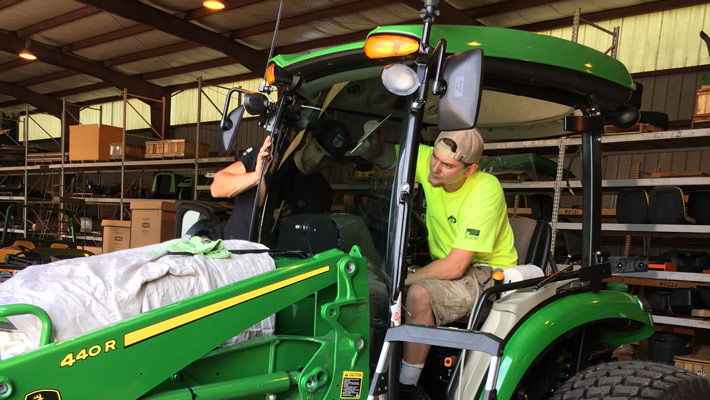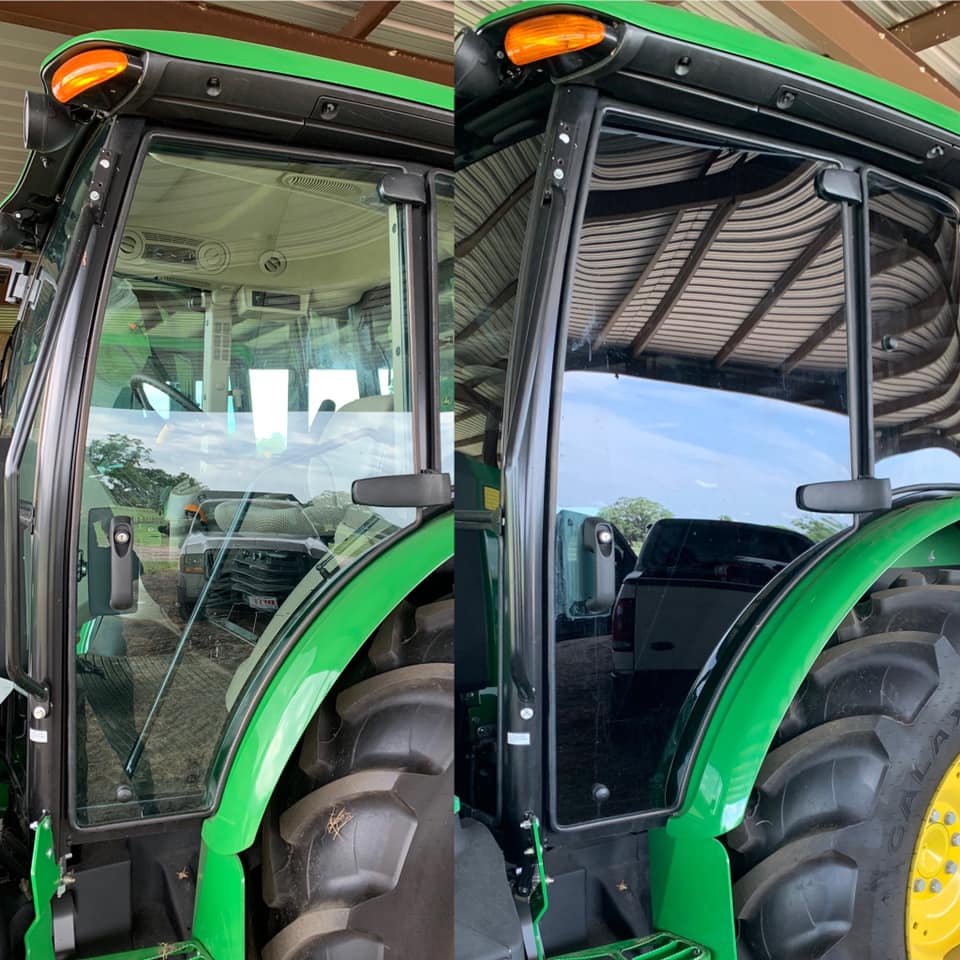Tractors are a vital piece of equipment in agriculture, playing a crucial role in various farming operations. However, one aspect that often gets overlooked is tractor tinting. Tinting windows on cars and trucks is a common practice, but when it comes to tractors, it raises questions about its practicality and effectiveness. In this blog post, we’ll delve into the concept of tractor tinting, its potential benefits, drawbacks, and whether it’s worth the trouble.
Understanding Tractor Tinting
Tractor tinting involves applying a specialized film to the windows of agricultural tractors. The tinting film is typically made of polyester and comes in various shades, offering different levels of visibility and protection. The primary purposes of tinting tractor windows include:
Glare Reduction: Tinted windows can help reduce glare from the sun, especially during long hours of operation in open fields. This can improve operator comfort and visibility, enhancing safety and productivity.
UV Protection: Just like automotive tinting, tractor tinting can block harmful ultraviolet (UV) rays from entering the cabin. This not only protects the operator’s skin from sun damage but also helps prevent fading and deterioration of interior components.
Heat Reduction: Tinted windows can also help in reducing the amount of heat entering the tractor cabin, particularly in hot climates. By blocking infrared radiation, tinted films can keep the interior cooler, creating a more comfortable working environment for the operator.
Privacy and Security: Tinted windows provide added privacy for the operator, shielding them from prying eyes while working in public areas. Additionally, tinting can act as a deterrent against theft by obscuring the view of valuable equipment inside the cabin.

Is Tractor Tinting Worth the Trouble?
While tractor tinting offers several potential benefits, it’s essential to consider whether it’s worth the trouble. Here are some factors to weigh:
Cost: The cost of tinting tractor windows can vary depending on factors such as the size of the windows, the type of tinting film used, and labor charges if hiring a professional installer. Operators must assess whether the upfront cost justifies the potential benefits in terms of comfort, safety, and equipment protection.
Legal Considerations: Before tinting tractor windows, it’s crucial to check local regulations and laws regarding vehicle window tinting. Some regions have restrictions on the darkness of tinted windows, and failure to comply with these regulations could result in fines or penalties.
Maintenance: Tinted windows require regular maintenance to ensure optimal performance and longevity. This may involve cleaning the windows with specialized products and avoiding abrasive materials that could scratch or damage the tinting film.
Operator Preference: Ultimately, the decision to tint tractor windows boils down to individual preferences and priorities. Some operators may prioritize comfort and protection, while others may prioritize cost-effectiveness and simplicity.
Experience the multitude of benefits that tractor tinting can provide, from glare reduction to enhanced privacy and security. But is it worth it for you? Consider factors like cost, legal requirements, and maintenance. For expert advice and professional installation, consult Tint Solutions today and make the right decision for your agricultural operation’s comfort, safety, and longevity.


